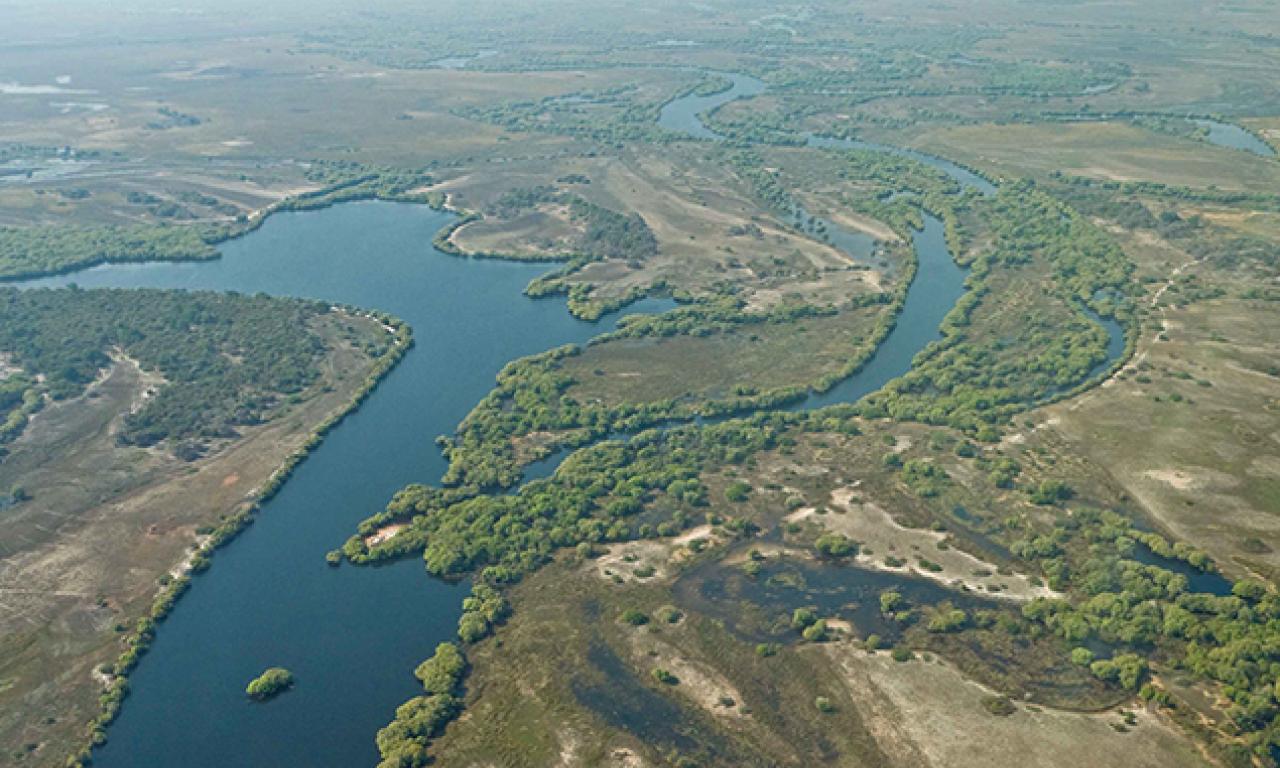
“Ensuring local ownership through genuine partnership with local communities and ensuring the participation of women - two of the principal keys to success” Christine Sililo has the elegance of the late Princess Diana and the astuteness of Hilary Clinton - not the kind of inhabitant that immediately springs to mind in a place where 83% of people are in poverty and 53% of children are stunted. But the Barotse floodplain in Zambia is just such a place and it is where you will find Christine and her family.
Recommended publications
- Understanding leadership in the environmental sciences
- Rethinking environmental leadership: The social construction of leaders and leadership in discourses of ecological crisis, development, and conservation
“Ensuring local ownership through genuine partnership with local communities and ensuring the participation of women - two of the principal keys to success”
Christine Sililo has the elegance of the late Princess Diana and the astuteness of Hilary Clinton - not the kind of inhabitant that immediately springs to mind in a place where 83% of people are in poverty and 53% of children are stunted. But the Barotse floodplain in Zambia is just such a place and it is where you will find Christine and her family.
I met Christine on a visit to see first hand the challenges people face who live on the Barotse floodplain. I wanted to know how one copes when vast swaths of one’s land are underwater from December to June each year, where channels and lakes are constantly shifting as the water recedes, and where, by September, most of the plain is parched and scoured by desiccating winds? I wanted to know what to do when most of the soils are poor and farms are so remote from markets? I wanted to know how one could provide health, welfare and financial services in a place where so many people move with the seasons?
I didn't of course find all the answers, but what Christine and her friends confirmed for me is that the key to making a difference in such a place is to work with the people who live there and help them arrive at their own solutions. "What we really need", she told me, "is training and knowledge, so that we can make our ideas work."
Our discussion also re-enforced for me how essential it is to partner with the local women in the community and, where needed, help overcome barriers to their participation. The research evidence for the huge benefits from ensuring the meaningful participation of women is overwhelming [1], but it is only when you meet people like Christine that it really hits home.
Christine is soon to take over as Secretary of the Sefula Water Users Farmer Group. Two other women, a new Chair and a new Treasurer, will join her. Together they have big plans for their community, and we plan to help them through our new CGIAR Research Program on Aquatic Agricultural Systems (AAS). We need to ensure that the best of science is available for them and make certain we learn together how best to enable the communities left behind during the green revolution and achieve the local ownership of planning that is so important for success.
[1] World Development Report (2012) Gender Equality and Development. World Bank, Washington DC
** You can find out more about the Barotse floodplain and our work on Aquatic Agricultural Systems at aas.cgiar.org. "